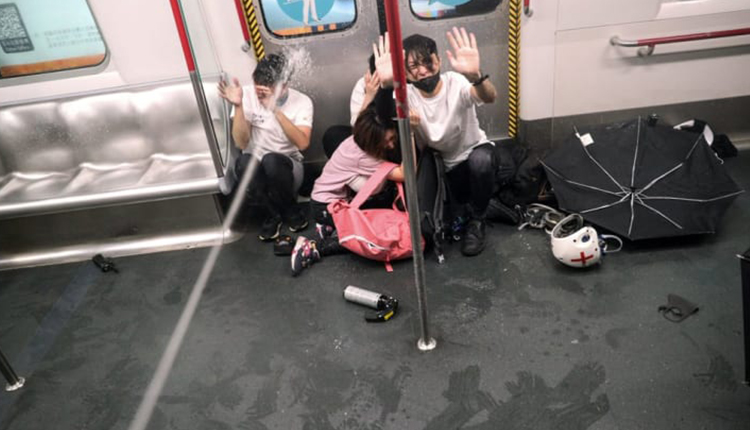Tightening control over efforts to manage the upheaval in Hong Kong, the Chinese authorities have set up a crisis command centre on the mainland side of the border, people familiar with the matter told Reuters.
They are considering replacing its official liaison to the restive semi-autonomous city.
As violent protests rattled Hong Kong, top Chinese leaders in recent months have been managing their response from a villa on the outskirts of Shenzhen, bypassing the formal bureaucracy through which Beijing has supervised the financial hub for two decades.
Ordinarily, communications between Beijing and Hong Kong are conducted through a Chinese government body; the Liaison Office of the Central People’s Government in Hong Kong. The Liaison Office is located in a Hong Kong skyscraper stacked with surveillance cameras, ringed by steel barricades and topped by a reinforced glass globe.
In a sign of dissatisfaction with the Liaison Office’s handling of the crisis, Beijing is considering potential replacements for the body’s director, Wang Zhimin, two people familiar with the situation further told Reuters. Wang is the most senior mainland political official stationed in Hong Kong.
The office has come in for criticism in Hong Kong and China for misjudging the situation in the city. “The Liaison Office has been mingling with the rich people and mainland elites in the city and isolated itself from the people,” a Chinese official said. “This needs to be changed.”
The Liaison Office may face growing pressure after city voters delivered a resounding defeat to pro-Beijing parties in local district elections on Sunday. Pro-democracy candidates won almost 90 percent of the seats, securing their first ever majority after running a campaign against Beijing’s perceived encroachments on Hong Kong’s liberties.
The Ministry of Foreign Affairs’ Office in Hong Kong called the report “false”, without elaborating, in a statement posted on its website Tuesday. “No matter how the situation in Hong Kong changes, the Chinese government’s determination to safeguard national sovereignty, security, and development interests is unwavering,” it said.
The statement said China was committed to the “one country, two systems” policy that governs Hong Kong’s affairs, and was opposed to “external forces” interfering in the city’s affairs.
The State Council’s Hong Kong and Macau Affairs Office and the Liaison Office in Hong Kong did not reply to faxed requests for comment. The office of Hong Kong Chief Executive Carrie Lam declined to comment for this story.
Source: Reuters
